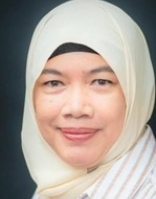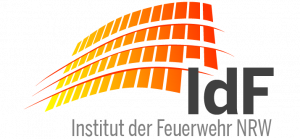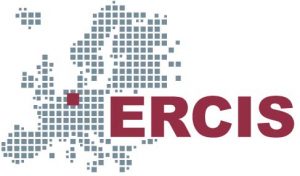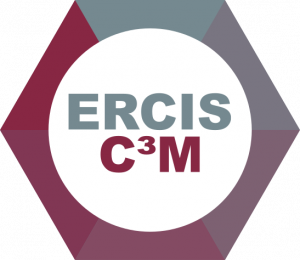The ISCRAM 2024 conference committee invites two broad categories of research papers:
CoRe: Completed Research (from 4000 to 8000 words).
WiP: Work In Progress (from 3000 to 6000 words).
CoRe papers are longer and describe completed research studies. WiP papers are shorter and meant to describe smaller, more focused research findings or research that is still in progress. Both of these paper types undergo a rigorous peer-review process and will be archived in the ISCRAM digital library.
IMPORTANT DATES:
| WHEN | WHAT |
|---|---|
Please refer to Dates and Deadlines for a comprehensive list of important dates.
Submission and Evaluation of WiP and CoRe Papers
All articles must be submitted to one of the tracks below. Once submitted, articles will be distributed for evaluation among the pool of reviewers according to their domain of expertise and the topics addressed by the research paper (ISCRAM.ORG Reviewing Guidelines). Papers related to the conference themes are particularly welcome. Accepted papers will be organized into sessions for the conference that will be distributed among the tracks.
All submissions will be made electronically using the ISCRAM templates. A PDF document should be submitted for all types of submissions. All submissions can be electronically uploaded using the EasyChair service for ISCRAM. Once submissions are accepted, authors will need to use the final proceedings template to submit publishable versions (this template includes author names etc.).
For ISCRAM 2024 we further welcome practitioner contributions in the practitioner track below. While practitioners are also invited to submit a CoRe or WiP research paper, we recognize that an academic review process is often not appropriate for practitioner contributions. Therefore, we invite practitioners to give a talk without having to submit a paper beforehand (more information on the practitioner track).
Please note that the templates have been updated on November 1st 2023 to align with the APA-style. References in papers based on the former template must be adapted to the new APA-style.
Submission via EasyChair
- Please select an appropriate track in EasyChair when submitting your paper.
- Submissions must adhere to the word limits described above, and submissions that exceed the limits will be rejected without review.
- The initial submission should be anonymous, with all author information removed.
- If you are using generative AI software, make sure to adhere to the policy of the Association for Computing Machinery as described in our FAQ.
ISCRAM 2024 TRACKS
Click on the following tracks to find out more about each individual call! All track descriptions are available for viewing and downloading.
Note: * refers to corresponding chairs of each track.
Track 1: Command & Control Studies

Linköping University Track Chair

Linköping University
KMC
Track Chair
Command and Control (C2) is a socio-technical process that aims to create coordination and collaboration among entities with a shared focus. This topic is cross-disciplinary and comprise studies of real-world situations as well as studies of exercises, training, and simulation of C2 work or tasks. The C2 track invites qualitative and quantitative studies, and case studies on techniques and methods that affect the way command and control is conducted and assessed. We especially invite submissions concerning evaluation of methods for designing exercises and training, such as scenario development, simulation, exercise design, debriefing facilitation, etc. Literature reviews of methods contributing to the development of C2 training and/or exercises are also welcomed. [Read More]
Track 2: Geographic Information Science (GIS) for Crisis Management

MTSU
Track Chair

Aston University
Track Chair

Track Chair

Arizona State University
Track Chair

Netherlands Red Cross
Track Chair
With crisis and hazardous events being an “inherently spatial” problem, geospatial information and technologies frequently support disaster and crisis management. Therefore, geospatial methods and tools – such as Spatial Decision Support Systems (SDSS), Geographic Information Systems (GIS) architectures, Volunteered Geographic Information (VGI), spatial databases, and spatial-temporal methods, as well as geovisual analytics technologies – have great potential to contribute to understanding the geospatial characteristics of a crisis, such as to identify regions at risk, estimate damaged areas, define evacuation routes, and plan resource distribution.
In line with this year’s conference theme, the GIS Track welcomes submissions that address process-centric views of integrating humanitarian technologies and developing resilient societies. We believe that a holistic and integrated process view of crisis management can overcome isolated considerations of crisis management lifecycle phases and showcase well-structured solutions using geospatial data, tools, and methods. The GIS Track is one of the longest-running ISCRAM tracks. The track presents an opportunity to involve the broader GIS community in ISCRAM, which traditionally publishes considerable work in disaster and crisis management. [Read More]
Track 3: Volunteers in Crisis and Emergency Management

Linköping University
Track Chair

Linköping University University of Agder
Track Chair

I3-Telecom Paris
Institut Polytechnique de Paris, France
Track Chair

I3-Telecom Paris
Institut Polytechnique de Paris, France
Track Chair

University of
Borås, Sweden
Track Chair
The importance of volunteerism in crisis management and emergency response has been known for decades and is once again highlighted by current events such as, COVID-19 pandemic, the war in Ukraine, floods, storms and wildfires due to climate change. While crises occur, emergency responders also need to attend to smaller frequent emergencies, for example house fires, medical emergencies, accidents and traffic incidents. In these circumstances, volunteers can and do make a difference in first response. The aim of this track is to showcase current research on how the involvement of volunteers can support crisis and emergency management using various ICT, and what are the needs, challenges and solutions. The track is broad, and we invite papers that provide rich descriptions or evaluations on integration of volunteers and on design, development and use of related technology support. [Read More]
Track 4: Usability and Universal Design of ICT for Emergency Management

University of Agder
Track Chair

University of Agder
Track Chair

UIC Paris
Track Chair

Oslo Metropolitan University
Track Chair
This track focuses on Usability and Universal Design of ICT in Emergency Management which is an important emerging area of research within the ISCRAM community. The primary objectives of the track are to focus on usability for all users, and to promote an understanding the implications of ICT for the elderly and people with disability in emergency management, uncover how ICT can contribute to remove barriers, and bring together relevant researchers and practitioners to ensure access to information for all in an emergency situation. The nature of this track is broadly interdisciplinary, accommodating research with approaches from diverse fields including Universal Design, Accessibility and Usability, Human-Computer-Interaction and Interaction Design, Human-Centered Design, as well as Information and Communication Technology (ICT), Information Systems, Cognitive Psychology, Disaster Resilience and Emergency Management, that together may contribute to disaster resilience for all. [Read More]
Track 5: Integrated Wildfire Risk Management

Fraunhofer Institute INT
Track Chair*

Pau Costa Foundation
Track Chair
Anthropogenic climate change and socioeconomic development are altering the dynamics of extreme wildfire events, leading to increasing wildfire risk globally. In 2023, the number of hectares burnt have beaten many records. In line with these developments, the call for more integrated wildfire risk management and efforts for enhanced governance approaches are increasing. However, governance approaches and technological innovations need to be brought together systematically to unfold their impact while Wildfire Risk Management requires a very complex collaboration of all stakeholders (from civil protection to citizens, forest owner, land-use planners, infrastructure operators or insurances) and across risk management phases. Due to the complexity, importance of the topics and number of innovations being developed in this thematic field, an entire hazard-related track is proposed. This track aims to bring the technological and procedural innovations together with the aim to boost integrated wildfire risk management at larger scale. [Read More]
Track 6: Wildfire Evacuation: Social Resilience and Local Community Response

NRC Canada
Track Chair

Vereinigung zur Förderung des Deutschen Brandschutzes e.V.
Track Chair

Movement Strategies
Track Chair

NRC Canada
Track Chair
This track “Emerging topics in wildfire evacuation” will collect interdisciplinary work on all stages of the Crisis Management Lifecycle as they relate to wildfires and how they affect residents, communities, first responders, and emergency managers of regions threatened by wildfires.
This track invites contributions from “traditional” ISCRAM topics with the specific application of wildfires. Driven by climate change, wildfires are increasing in frequency and intensity globally with far-reaching consequences for local residents, communities, first responders, and emergency managers. For example, in Canada, wildfires have already burned over 15 million hectares in 2023 and the fire season is not over yet. Many regions of the world that previously did not have to deal with wildfires are increasingly facing wildfire-related threats. [Read More]
Track 7: IT Solutions for Crisis Management

Fraunhofer IOSB
Track Chair

DRAXIS Environmental
Track Chair

Netherlands Defense Academy
Track Chair
IT solutions play a vital role in crisis management by providing real-time information, enhancing situational awareness, and facilitating efficient decision-making processes. These solutions can include various technologies such as data analytics, artificial intelligence, cloud computing, and Internet of Things (IoT) devices. By leveraging IT solutions, crisis management teams can improve their response time, enhance the accuracy of information sharing, and optimize resource allocation. For instance, real-time data analysis can help to identify patterns, predict potential risks, and enable proactive measures to mitigate the impact of crises. This track aims to explore the latest advancements and innovative approaches in IT solutions(which can either be complete software systems or (open source) components for specific tasks) for crisis management. It will provide a platform for researchers as well as practitioners to present their findings, exchange ideas, and discuss emerging challenges and opportunities in this field. Live demonstrations are welcomed as well. [Read More]
Track 8: Risk Communication and Community Engagement

Trilateral Research
Track Chair

Trilateral Research
Track Chair

University of Stuttgart
Track Chair
This track invites contributions that discuss innovative and inclusive approaches to improving risk communication and engaging communities in disaster management activities throughout the entire disaster management cycle, highlighting both technical and non-technical solutions. This panel will explore current developments in innovation in community engagement and inclusive risk communication to further include communities in the disaster management cycle. [Read More]
Track 9: Social Media for Crisis Management

Hamad Bin Khalifa University
Track Chair

Technical University
of Darmstadt
Track Chair

Concordia University of Edmonton
Track Chair

University of Maryland
Track Chair

Brigham Young University
Track Chair

California State University
Track Chair
The goal of this track is to spotlight ongoing research demonstrating how Social Media can contribute to crisis response, management, and resilience. We welcome papers offering in-depth descriptions and evaluations of Social Media-based practical applications for fostering response, collaboration and broad engagement in all stages of crisis management. This encompasses initial planning, preparedness, detection, response, recovery, and building resilience. [Read More]
Track 10: Impact-driven Emergency and Crisis Management

University of Twente
Track Chair

Queen’s University Belfast
Track Chair

Fraunhofer IESE
Track Chair
Emergency services worldwide are facing an increasing pressure with a shortage in staff and funding, but an increase in demand. The ongoing developments and increase of natural and man-made disasters make an efficient use of resources crucial for crisis management. While research on emergency and disaster management has seen significant improvements in the past and can address many of the challenges, in many countries there is still a huge gap between research and practice and practice hardly profits from these improvements.
Therefore, this track explicitly targets this gap and wants to analyze reasons and existing barriers and challenges. In this track, we seek submissions that focus on impact-driven research on emergency and crisis management and present success stories and best practices, for example, on how to make impact in practice and how to actually measure impact. In line with the overall conference theme, this track also takes a holistic view on crisis management, and addresses the collaboration between practice and research, the communication of research and solutions to planning and decision problems, as well as the transfer of research into practice. [Read More]
Track 11: Disaster Public Health & Healthcare Informatics

Auckland University of Technology
Track Chair

Medical College of Wisconsin
Track Chair

Center for Research & Teaching in Economics
Track Chair

Medical College of Wisconsin
Track Chair

University Grenoble Alps
Track Chair

University of Agder
Track Chair
The COVID-19 pandemic placed a renewed focus on informatics-based approaches for healthcare systems and public health systems responding to crises. The domain of disaster healthcare informatics is unique as it involves multiple medical subdisciplines ranging from global/emergency medicine to primary care. Public health infrastructure, ranging from community engagement to laboratory services also play a pivotal role in responding to major health crises. Health systems must interface effectively with joint emergency operations centers often at multiple levels of government. These systems rely heavily on physicians, nurses, infection preventionists, and EMT practitioners and address both population level and individual patient level data.
Given these factors, data fusion/integration, data security and privacy, and the legal and ethical implications of information systems designed to support healthcare and public health systems in crisis are of particular importance. Areas of particular interest for the track include computational epidemiology, hot-spotting, community situated case management, contact tracing, automated/autonomous/robotic clinical systems, understanding complex systemic risk in healthcare systems, and healthcare associated infections (particularly in long term care settings), and disaster mortuary services. [Read More]
Track 12: Visions for Future Crisis Management

Anne-Marie Barthe-Delanoë*
IMT Mines Albi
Track Chair

IMT Mines Albi
Track Chair

Texas Tech University
Track Chair
In today’s dynamic and unpredictable world, the role of information systems in crisis response management is both pivotal and uncertain. To address the role of information systems in unprecedented crises, this track aims to address the two fundamental challenges that emerge in the crisis management lifecycle. First, researchers must learn from past emergencies and disasters by applying state-of-the-art theories and methods to understand and evaluate the use of information systems by crisis responders and citizens. Second, researchers must help communities prepare for future, unprecedented crises that test their capacities, adaptability, and resilience. These preparations include designing and testing novel technologies, improving training, simulation, and emergency exercises, and informing policy and procedures that help organizations and governments effectively manage crises. [Read More]
Track 13: Information Systems in Humanitarian Operations

Track Chair

Hanken School of Economics
Track Chair

University of Münster
Track Chair
This track aims to explore the pivotal role of both information systems and their interrelated digital technologies in enhancing the efficiency, effectiveness, and coordination of aid delivery in humanitarian aid operations. It covers a diverse range of papers focusing on topics such as the integration of digital technologies in humanitarian logistics, or adoption of artificial intelligence (AI) in disaster relief supply chains. This proposed track is not limited to the specified topics, but also covers a wide range of information technology and communication (ICT) related papers adding value for the improved performance of humanitarian aid operations. The proposed track is designed to offer a holistic viewpoint along different phases of crisis (from preparedness to response, recovery and development) that synchronizes with this year’s conference theme of embracing the crisis management lifecycle. It also covers both front-end and back-end technologies used or could be implemented in all types of crisis from climate-related shocks, natural hazards (e.g., flooding in Libya, earthquake in Morocco), to the conflict and refugee crisis (e.g., War in Sudan, Ukraine-Russian war). [Read More]
Track 14: Analytical Modeling and Simulation

Virginia Tech
Track Chair

Mount St. Mary’s University
Track Chair

Virginia Tech
Track Chair

HEC Montreal
Track Chair
The aim of this track is to discuss the development and application of analytic problem-solving techniques, including simulation, optimization, and statistical analysis, which can help improve decision making in the context of crisis management. The development of such techniques is critical as part of an integrated and interdisciplinary approach that combines the various aspects of crisis management to support informed and effective decision making. This track invites both theoretical and applied research papers discussing topics relevant to the concepts of modeling and simulation. Its overall purpose is to provide a dedicated venue for such research to be shared and discussed, and thus to highlight the breadth and depth of efforts to improve the effectiveness and efficiency of crisis management. In honor of this year’s conference theme, submissions that explicitly consider the crisis management lifecycle will be particularly welcome. [Read More]
Track 15: Collaborative Robots for Emergency Situations

University of Agder
Track Chair

Università degli
Studi di Siena
Track Chair
Robots designed for direct human-robot cooperation (HRC) in a shared environment are referred to as collaborative robots (cobots). Novel scientific trends in cobots research are moving the technology from predictable spaces like production lines into disaster zones. Cobots can collaborate with their human teammates in the aftermath of earthquakes, accidents, avalanches, or explosions, reducing the risk to human life and enhancing the likelihood of rescuing victims. In this track, authors are invited to share their research focusing on the fact that the collaboration between humans and robots needs to go much further – rather than seeing robots as tools or mobile sensors, they need to be seen as a team member in emergency situations. We welcome contributions from scientists, practitioners, end-users, and first responders. [Read More]
Track 16: Open Track

University of Münster
Track Chair

Vrije Universiteit Amsterdam
Track Chair
The objective of this track is to facilitate the submission of manuscripts that delve into subjects beyond the purview of the primary tracks. We particularly welcome submissions that introduce and scrutinize emerging and cross-disciplinary themes. [Read More]
Track 17: Practitioner Track

Deutsches Rettungsrobotik Zentrum e.V.
Track Chair

Owner at Netage B.V.
Track Chair
The Practitioner Track extends an invitation to distinguished practitioners in the realms of crisis management, response, humanitarian organizations, governmental authorities, policymakers, and seasoned practitioners to deliver talks at the ISCRAM 2024 conference without having to write a paper. Please visit the CALL FOR PRACTITIONER TALKS webpage for more information.





